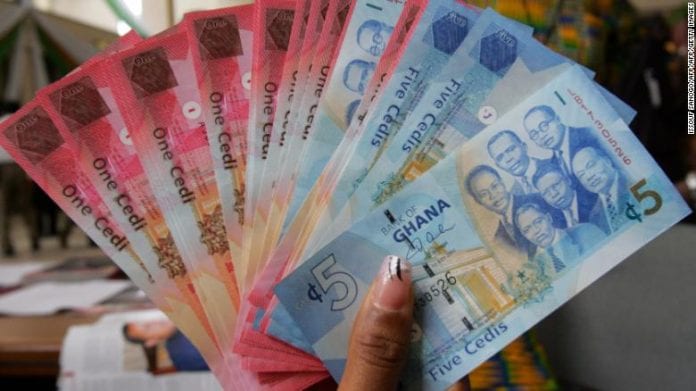
The Executive Director for the Center for Public Policy and Economic Analysis, Julius Gyimah has disclosed that the high demand for imported goods is the major cause of the dollar to cedi depreciation.
According to him, during the festive season, the importation of goods gives strength to the foreign market giving the dollar a high exchange rate against the cedi.
Speaking on Kasapa FM midday news with Akua Sonto on the cause of the cedi depreciation against the dollar, the Financial Expert stated that the demand for items like rice, oil, and other goods is the main factor behind the current economic pressures. Therefore, he advises the government to encourage foreign investment and focus on expanding the export sector to help support the local currency.
The Bank of Ghana has also mentioned that the Cedi came under pressure as offshore investors exited positions in domestic securities.
“The increase in interest rates in global markets has prompted portfolio investors to divest from their investments here,” the Bank of Ghana noted.
Furthermore, Julius Gyimah added that the upcoming festive season, with Christmas approaching and the start of the school year for students, has led to increased demand for imports. Importers are paying in dollars, which is contributing to the Cedi’s depreciation against the dollar.
“We also don’t produce enough locally, so importers are looking for dollars to pay for the goods they purchase,” Gyimah explained.
With the government set to announce measures to counter the economic downturn, there are expectations of relief, particularly in the energy sector, after months of inflation that led to a 250-basis point increase in the policy rate, bringing it to 17%.
“The inflation has largely been driven by increased imports of goods to meet local demand and rising transportation fares, which have also contributed to food inflation,” Gyimah said.
The financial expert cautioned that the Bank of Ghana should avoid bringing in more dollars, as this could further harm the Cedi if importation levels remain high.



